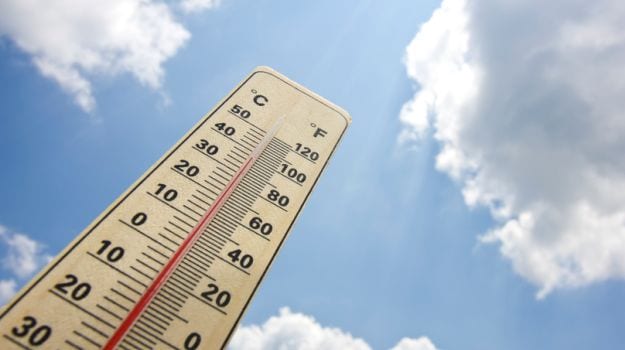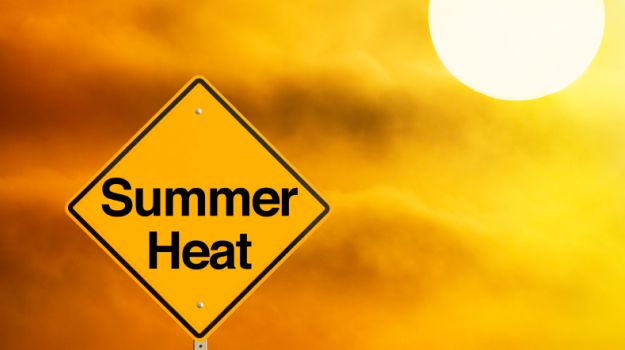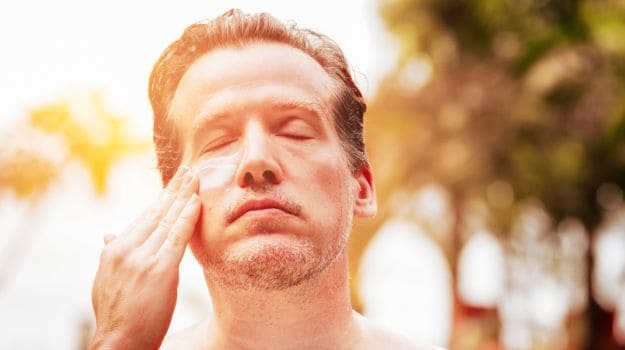With the rising mercury levels, stepping out in this sultry weather has its adverse effects - from an unwanted pimple on your otherwise clear skin to that annoying rash on your back. The sun comes out in full throttle, throwing you off your guard. You need to be extremely careful about everything, be it the food you eat or the clothes you wear. The tendency to fall sick is greater during this period, hence one shouldn’t exert themselves too much.Excessive physical activity and prolonged exposure to the unforgiving rays of the sun may cause a heat stroke. Heat stroke is a condition caused due to the overheating of your body as a result of prolonged exposure to high temperatures. The most serious form of heat stroke is when your body temperature reaches 40 degree Celsius or above. If left untreated, it may cause damage to the brain and other internal organs like heart, kidneys and muscles.The symptoms of a heat stroke are divided under four stages depending on the severity. Dr Sunil Sharma, Madan Mohan Malviya Hospital in New Delhi lists various heat stroke symptoms you must pay attention to for quick and effective treatment -
1. Sweating and Headaches: Prolonged exposure to a hot environment and increased physical activity, may cause the first stage of a Heat Stroke. The common symptoms of this stage are discomfort and uneasiness. You experience excessive sweating with strain during the presence of heat. You may also have to deal with acute headaches. According to the National Center for Biotechnology Information, “Headache is considered as one of the most common symptoms of heat stress disorders”. You may experience a throbbing headache and dizziness. Excessive heat causes water and salt levels in our body to reduce greatly causing the uneasiness. 
2. Hyperthermia: When the heat exposure goes up a notch, you may experience a sudden rise in your body temperature too. Essentially, the part of our brain which controls our body temperature fails to regulate it which is also known as thermoregulatory failure. This causes the body temperature to rise.

3. Dehydration and Weakness: Exposure to heat for a prolonged period increases thirst and fluid loss. This causes dehydration along with weakness, discomfort and anxiety. Some people may feel dizzy, experience a headache or even faint. In such a situation the body temperature may fall drastically, stay stable or increase inconsiderably. Other symptoms of this stage include nausea and vomiting.

4. Heat Stroke: This is most severe case where the body temperature rises above 40 degrees centigrade. It is a nervous system abnormality which if not treated in time can affect the brain. The symptoms for this stage include absentmindedness, loss of motor control, reduced brain functions, nausea and vomiting. If not recognised in its early stages or treated properly, the patient can also slip into coma.

It is essential to know how to provide first aid to someone suffering from a heat Stroke. Dr. Sharma explains the steps that need to be taken immediately -1. The individual should be placed in a shady place, away from the harmful rays of the sun and preferably under a fan.2. Make the person lie down, loosen their clothes and dab the body with cold water.3. Give them water along with salt and sugar to drink to replenish the body’s water content4. If the person is suffering from high fever or severe headache, you may give him a Paracetamol pill.Keep yourself well hydrated to escape the summer heat. It is advisable to limit your alcohol consumption during these months as it reduces your body’s capacity to retain water. One should avoid staying outdoors for long and add fruit and veggies with high water content to your diet.Disclaimer:
1. Sweating and Headaches: Prolonged exposure to a hot environment and increased physical activity, may cause the first stage of a Heat Stroke. The common symptoms of this stage are discomfort and uneasiness. You experience excessive sweating with strain during the presence of heat. You may also have to deal with acute headaches. According to the National Center for Biotechnology Information, “Headache is considered as one of the most common symptoms of heat stress disorders”. You may experience a throbbing headache and dizziness. Excessive heat causes water and salt levels in our body to reduce greatly causing the uneasiness.

2. Hyperthermia: When the heat exposure goes up a notch, you may experience a sudden rise in your body temperature too. Essentially, the part of our brain which controls our body temperature fails to regulate it which is also known as thermoregulatory failure. This causes the body temperature to rise.

3. Dehydration and Weakness: Exposure to heat for a prolonged period increases thirst and fluid loss. This causes dehydration along with weakness, discomfort and anxiety. Some people may feel dizzy, experience a headache or even faint. In such a situation the body temperature may fall drastically, stay stable or increase inconsiderably. Other symptoms of this stage include nausea and vomiting.

4. Heat Stroke: This is most severe case where the body temperature rises above 40 degrees centigrade. It is a nervous system abnormality which if not treated in time can affect the brain. The symptoms for this stage include absentmindedness, loss of motor control, reduced brain functions, nausea and vomiting. If not recognised in its early stages or treated properly, the patient can also slip into coma.

It is essential to know how to provide first aid to someone suffering from a heat Stroke. Dr. Sharma explains the steps that need to be taken immediately -1. The individual should be placed in a shady place, away from the harmful rays of the sun and preferably under a fan.2. Make the person lie down, loosen their clothes and dab the body with cold water.3. Give them water along with salt and sugar to drink to replenish the body’s water content4. If the person is suffering from high fever or severe headache, you may give him a Paracetamol pill.Keep yourself well hydrated to escape the summer heat. It is advisable to limit your alcohol consumption during these months as it reduces your body’s capacity to retain water. One should avoid staying outdoors for long and add fruit and veggies with high water content to your diet.Disclaimer:
The opinions expressed within this article are the personal opinions of the author. NDTV is not responsible for the accuracy, completeness, suitability, or validity of any information on this article. All information is provided on an as-is basis. The information, facts or opinions appearing in the article do not reflect the views of NDTV and NDTV does not assume any responsibility or liability for the same.
Advertisement








